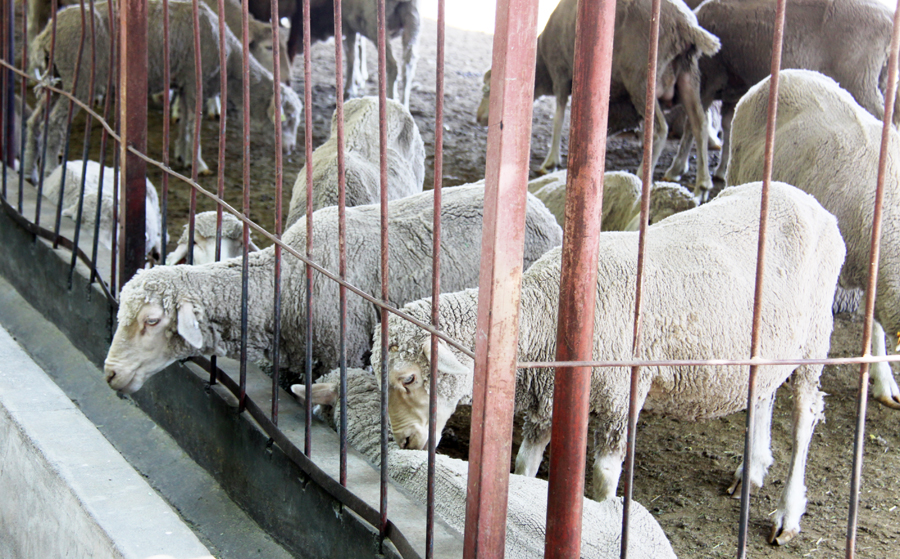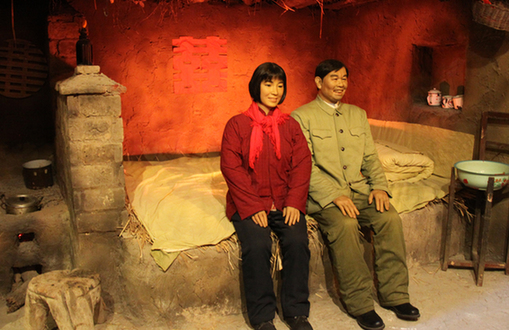Xinjiang Diary Day 4: Sights and sounds at Shihezi
- By Doris
 0 Comment(s)
0 Comment(s) Print
Print E-mail CRI, July 14, 2014
E-mail CRI, July 14, 2014
A flock of sheep at the Xinjiang Academy of Agricultural and Reclamation Science at Shihezi, Xinjiang on Thursday, July 10, 2014. [Photo: CRIENGLISH.com]
If there is one thing that's not scarce in Xinjiang, it is sheep. Their meat is found in all kinds of dishes: lamb soup, lamb stew, lamb-kabobs. In Xinjiang, people also cook them in a variety of ways: fried, steamed, grilled and etc. Unlike in Beijing, where lamb-kabobs or hotpot is considered street food, people here see it a specialty, or even a delicacy. It's served at galas and feasts for special guests.
Research and Innovation
Besides being served in delicious dishes at restaurants, you can also find flocks of sheep at the Xinjiang Academy of Agricultural and Reclamation Science. There, they are used as the subjects of research projects. Most of the sheep at the school are actually the products of cloning.
The academy is at the forefront of agricultural and food studies in the region. In the labs, researchers are testing all sorts of green and organic foods. They are also setting up unmanned farms, which are operated by new technology and don't require any manual labor. All you need to do to run the farm is press a few buttons.
The Tale of a Retired Captain from XPCC
While there is fast-paced technological and agricultural development in Xinjiang, the region has a long history as well, especially regarding the Xinjiang Production and Construction Corps, XPCC. Nowadays, the fields outside of Shihezi is lined with tall stalks of corn and there are plenty of colorful sceneries. A little more than half a century ago, when the XPCC arrived in the area, it was all sand and desert.
We drove along a winding road to an old military compound which housed the first company of the 152nd regiment's 8th division in the XPCC. Because the semi-arid climate of the desert provided hardly any material for the soldiers to build houses, they either dug holes to live underground or built mud huts. It was a harsh life and many lives were lost in the building of Shihezi. Our tour guide, Mr. Hu, is a retired captain of the company.
Mr. Hu is 78 years old this year. He said he joined the army when he was 17 years old and followed his fellow soldiers to Xinjiang in the 1950s. When he arrived, he had to put down his weapons and learn to farm. At first, there were only men in his company. Later, women were brought in from Shanghai, Hunan and Shandong with the expectations that they would marry the single soldiers. Mr. Hu married one of these women and they lived underground for 3 years. He said that although life was hard, those were some of the happiest times in his life.
On the walls at the XPCC Military Reclamation Museum are wedding pictures of the first generation XPCC couples as well as pictures of their children, who later became second generation of XPCC members. We may not know their names but these men and women are truly giants in the building and development of Xinjiang. It is thanks to them that the beautiful city of Shihezi exists today.






Go to Forum >>0 Comment(s)